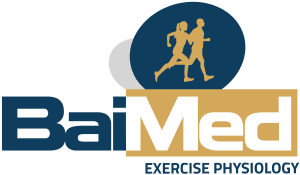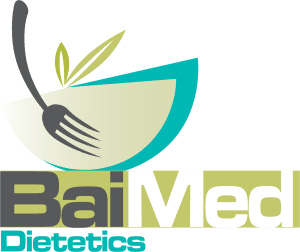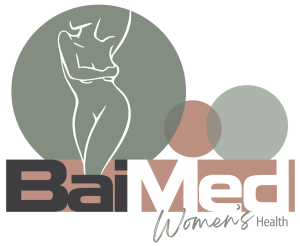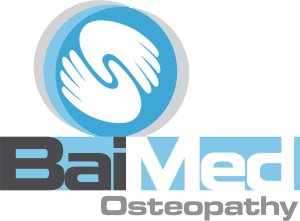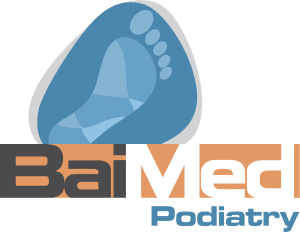The Link Between Diet and Restless Leg Syndrome
Restless Leg Syndrome (RLS) can be a nightly struggle, affecting millions of people, and often robbing them of peaceful sleep and much-needed rest. The persistent urge to move the legs, accompanied by uncomfortable sensations, can be particularly frustrating.
While RLS is often linked to neurological and genetic factors, did you know that your diet can also play a significant role in this condition?
If you or a loved one experiences RLS, it may be beneficial to take a look at your daily food intake and see what kinds of helpful changes or additions you could make to contribute to easing symptoms.
In this blog, we’ll delve into the intriguing connection between what you eat and the presence of RLS. We’ll explore the foods to avoid if you have RLS, discover the dietary choices that can ease your discomfort, consider the impact of coffee and Restless Leg Syndrome, and discuss how you can treat and manage symptoms more effectively.
What is Restless Leg Syndrome (RLS)?
Before we explore the link between diet and RLS, let’s first understand what Restless Leg Syndrome is.
RLS is a neurological disorder that affects the legs and is characterised by unpleasant sensations that lead to an uncontrollable urge to move your legs [1]. These symptoms tend to worsen during periods of rest or inactivity, making it challenging to relax or get a good night’s sleep.
While going to sleep can often trigger bouts of RLS symptoms, this condition is classified as a sleep disorder and a movement disorder due to the involuntary moving and twitching of the leg muscles.
It’s not exactly clear what the root cause of RLS is, but research shows that the condition can be genetic, or sparked due to associated neurological disorders [1]. Some medications can also trigger RLS, like anti-nausea medicine, certain antidepressants, and even some antihistamines [1].
The other major factor that contributes both to developing Restless Leg Syndrome and to an increase in its symptoms is – you guessed it – your diet.
The Connection Between Diet and Restless Leg Syndrome
Certain foods can exacerbate RLS sensations, making it essential to understand the role your diet plays in this perplexing condition. Studies show that lifestyle factors such as diet can directly contribute to an increased risk of developing RLS and experiencing worse symptoms [2].
According to the Restless Leg Syndrome Foundation, it’s crucial to maintain a healthy diet in order to decrease your chances of getting RLS and to reduce the severity of symptoms if you’ve developed the condition.
Among other foods and beverages, the Foundation highlights caffeine, alcohol, nicotine, and high-sugar foods as potential triggers for Restless Leg Syndrome symptoms [3].
While it can be difficult to avoid these foods twenty-four-seven (and quite dull!), it’s good to understand how moderate to high doses of them can negatively impact your well-being and quality of life if you do have RLS.
Rather than focusing on things you need to cut out, try to think of it as a proactive step to recovery. A healthy diet incorporating the foods we’ll talk about below offers a natural way to help ease the effects, and might even prove to be the solution you need to achieve a good night’s sleep.
Which Foods Should I Avoid if I Have RLS?
Let’s start with foods you might want to consider avoiding if you have RLS, or if you think you’re at an increased risk of developing Restless Leg Syndrome.
Certain foods have been linked to triggering or worsening RLS symptoms, and while not everyone will be affected in the same ways or to the same degrees, these foods offer a good starting point when reevaluating your diet:
- Caffeine: Coffee and Restless Leg Syndrome have a strong connection. As caffeine is a stimulant that can disrupt sleep patterns, some people find that this can worsen their RLS symptoms. Try reducing your consumption of coffee, tea, chocolate, and energy drinks, especially in the evening [4].
- Alcohol: While alcohol might initially relax you, it can disrupt your sleep cycles and intensify RLS symptoms. It’s best to moderate your alcohol consumption, especially in the evening [5]. Of course, this has many added benefits outside of RLS treatment, so it’s a great habit to form for a healthy lifestyle.
- Foods high in refined sugar: While there’s no conclusive evidence that diets high in refined sugar directly cause RLS or increase its symptoms, studies show that those who follow diets low in refined sugar experienced fewer symptoms, as well as a decrease in the severity of symptoms [6]. Try sticking to natural sugars and sweeteners like honey to see if it helps your RLS.
Highly processed foods: These foods are often high in added sugars, unhealthy fats, higher levels of sodium, and unnecessary chemicals like MSG. These additives can contribute to inflammation and disrupted sleep patterns, both of which can exacerbate RLS symptoms [7].
What to Eat if You Have RLS
Ensuring a well-balanced diet can help alleviate Restless Leg Syndrome symptoms. It might take you a bit of trial and error, but if you’re struggling to sleep or you find your daily activities impaired by RLS, switching up your diet is worth a try to see what works.
Consider incorporating the following dietary recommendations into your routine:
- Iron-rich foods: Iron deficiency has been linked to RLS symptoms. Include iron-rich foods such as spinach, lean meats, beans, and fortified cereals in your diet [8].
Consult with a healthcare provider to determine if iron supplementation is necessary. A dietician or nutritionist may also be able to recommend Restless Leg Syndrome dietary supplements.
- Magnesium-rich foods: Magnesium plays a role in muscle relaxation and quality sleep, and it’s been found that some cases of RLS may be caused or exacerbated by magnesium deficiencies [9].
Good sources of magnesium to try in your diet include nuts, seeds, whole grains, and leafy green vegetables.
- Vitamin B12-rich foods: Vitamin B12 deficiency has been linked to neurological disorders that could include, or be linked to, RLS [10].
Incorporate foods like eggs, salmon, beef, and dairy into your diet, or consider taking vitamin B12 supplements. Remember to consult with your doctor before taking any kind of supplements or vitamins like B12.
How RLS Treatment Works
Understanding how to shape your diet to suit Restless Leg Syndrome can be difficult, especially with so many processed and refined sugar foods lining our grocery stores. It’s confusing and often overwhelming – but that’s where Dietetics can clear the waters.
If you’re unsure about your diet and RLS, speak to a dietician or nutritionist about how to make changes. This not only provides you with a clear plan to follow but also helps you to more easily understand the connection between food and RLS.
A dietician can inform you about the relationship between coffee and Restless Leg Syndrome and may recommend certain Restless Leg Syndrome dietary supplements that you could try.
Exercise and Restless Leg Syndrome
While diet does play a significant role in managing RLS, it’s important to remember that it is only one aspect of treatment. Other treatment options for Restless Leg Syndrome include medication and therapies such as physiotherapy and exercise physiology.
The RLS Foundation tells us that exercise is a huge part of RLS treatment [3]. For those struggling to control symptoms, they suggest daily exercise of around 30-60 minutes with a focus on lower-body movements. Incorporating both cardio and resistance training is beneficial, but be careful not to overdo it.Specific exercises and routines offer structured, targeted treatment that can assist in reducing the severity of symptoms. This is where physiotherapy and exercise physiology come into play.
Physiotherapy and Exercise Physiology Treatments
At BaiMed, we specialise in alleviating pain and aggravation, such as that caused by Restless Leg Syndrome. With the assistance of our highly experienced specialists and our collaborative approach to care, you’ll be guided through these kinds of exercises at a pace that suits you.
Often, having the knowledge of which exercises to do and how to do them can go a long way – at BaiMed, you’ll be given practical tips and exercise plans tailored to your individual condition and symptoms.
Although treatments may differ from one individual to another, the ultimate goal is to improve sleep, minimise discomfort or pain, and enhance mobility. This is what our physios and exercise physiologists do best!
Reduce Your RLS Symptoms With BaiMed
If you’re experiencing Restless Leg Syndrome symptoms and looking for effective dietary advice or physiotherapy treatment, reach out to us at BaiMed. Our dedicated team is here to provide personalised care and help you find much-needed relief from RLS symptoms.
Your journey towards better sleep and improved quality of life starts with us! Book an appointment or contact your nearest clinic to chat about your circumstances.
Sources
- Restless Leg Syndrome – National Institute of Neurological Disorders and Stroke
- Lifestyle Factors and Risk of Restless Legs Syndrome: Prospective Cohort Study – National Library of Medicine
- Lifestyle – Restless Leg Syndrome Foundation
- Restless Legs Syndrome – Mayo Clinic
- Does Alcohol Exacerbate Restless Leg Syndrome? – Center for Vein Restoration
- Increase in Restless Legs Syndrome due to the Consumption of Food Rich in Added Sugar. Study with a Repeated N-1-trial – Herald Scholarly Open Access
- 10 Causes of Restless Leg Syndrome (RLS) – Brain Body Well
- Restless Leg Syndrome (RLS) – Johns Hopkins Medicine
- The Link Between Magnesium and Restless Leg Syndrome – Healthline
- Possible association between vitamin B12 deficiency and restless legs syndrome – National Library of Medicine
This article was last reviewed on 24/10/2023



